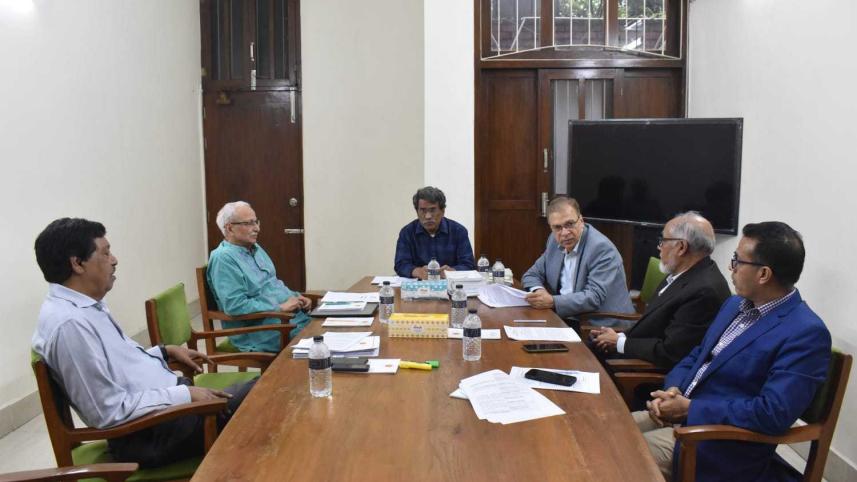Signing July charter: Parties to decide only after seeing implementation plan

Major political parties yesterday said they would decide whether to sign the July Charter only after reviewing the National Consensus Commission's recommendations for the government on how to implement the charter.
Their reactions came hours after the commission announced that the signing ceremony for the charter will be held on October 15 at the South Plaza of the Jatiya Sangsad in the presence of Chief Adviser Prof Muhammad Yunus, who also heads the commission.
The announcement followed a series of dialogues that ended without agreement on the implementation process.
While the commission said consensus was reached on holding a referendum to ensure public endorsement of the charter, the parties remained divided over its timing.
The BNP said the referendum should be held on the same day as the next national election in February 2026, arguing that holding it earlier would be "impractical, costly, and could delay the polls".
The Jamaat-e-Islami and the National Citizen Party insisted the referendum must take place before the election, with Jamaat saying this would give the charter "strong legitimacy", and NCP warning that holding it on polling day would "make it lose importance".
A commission press release said the date for signing was finalised at a meeting yesterday.
The meeting discussed implementation of the charter based on feedback from five rounds of dialogues with political parties and opinions from experts.
The commission said it would finalise the charter and submit it to the government alongside implementation recommendations after analysing the parties views.
Formed in mid-February to build consensus on reforming state institutions, the consensus commission drafted 84 proposals, half involving constitutional reforms.
The final round of dialogue ended in a deadlock on Wednesday.
The commission earlier asked 30 political parties and alliances to send two representatives each for the signing ceremony. Most have already submitted names, and commission sources said major parties, including BNP, Jamaat and NCP, have responded positively about attending.
Monir Haider, special assistant to the chief adviser, told reporters after yesterday's meeting that the commission is in touch with the parties on their participation and "they are giving positive responses".
Speaking to The Daily Star last night, BNP Standing Committee member Salahuddin Ahmed said it would be appropriate to comment on the matter only after reviewing the recommendations.
He said that before making a decision on the signing, parties are supposed to be informed about what recommendations the commission will send to the interim government on the charter's implementation.
However, the BNP was not informed about the fixing of the date for the signing. "We don't know whether there will be another meeting or a signing ceremony that day," Salahuddin said.
Hamidur Rahman Azad, assistant secretary general of Jamaat, said his party participated sincerely in the reform talks.
"Reforms are necessary for the people and the country. Those who refuse to change their stance for the greater good are against reforms," he said.
Asked if Jamaat would sign the charter, he replied, "We are positive about the government and hope it will hold a referendum before the next parliamentary election and implement the necessary reforms beforehand."
Javed Rasin, joint convener of NCP, said his party supports the key reform proposals but will decide on signing after reviewing the commission's implementation plan and its decision on notes of dissent from parties.



 For all latest news, follow The Daily Star's Google News channel.
For all latest news, follow The Daily Star's Google News channel.
Comments